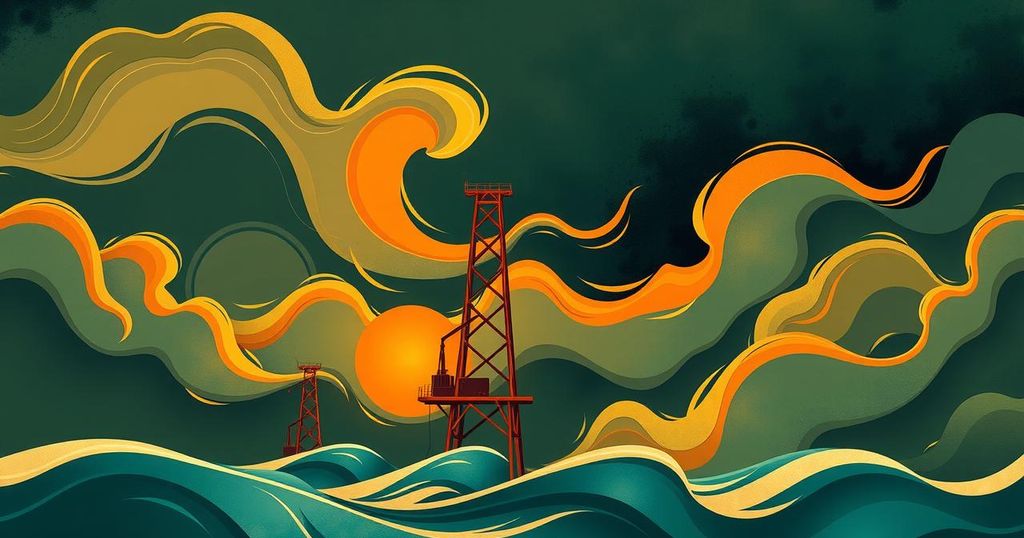Peru faces a turbulent political climate impacting Petroperú, the state oil company, which is struggling financially. The government declared an environmental emergency following a recent oil spill and is providing bailouts amid a history of political instability marked by frequent presidential changes. Investors remain interested in Petroperú, but environmental opposition and the company’s debt issues complicate its recovery efforts.
In late December, the Peruvian government declared a 90-day “environmental emergency” following a crude oil spill from Petroperú’s flagship refinery on the Pacific coast. This incident highlights ongoing crises at Petroperú, which has been struggling financially after a decade-long, $6.5 billion modernization of the Talara refinery, completed in 2023, but not without significant delays and overspending, leading to considerable debt for the company.
The national government has intervened multiple times with bailouts, providing over $1 billion last year and assuming Petroperú’s debt payments after significant board resignations. Despite these challenges, Petroperú has attracted international investors interested in potentially lucrative bonds, relying on the expectation of continued government support. As noted by Schreiner Parker of Rystad Energy, “I don’t think Peru would let their national oil company fail, but the current political situation raises uncertainty.”
Peru’s political instability adds to these investors’ concerns; the nation has seen seven presidents since 2016, and the political environment remains highly fragmented. Pedro Castillo, an unexpected winner in the 2021 election, was imprisoned after an attempt to dissolve Congress, and current President Dina Boluarte’s approval ratings are low due to corruption scandals. Parker indicates that while a default seems unlikely, a variety of potential political outcomes could affect Petroperú’s management and operations.
The ongoing political turmoil complicates Petroperú’s recovery, especially in its efforts to boost production at the Talara refinery. Parker asserts, “Hydrocarbons require long-term vision and long-term planning,” which has been disrupted by rapid governmental changes. The company anticipates returning to profitability by 2025, having increased its processing capacity from 60,000 barrels to 90,000 barrels per day. The refinery also aims to process heavier crude from the Amazon.
However, the Norperuano pipeline has faced significant criticism due to frequent leakages, inciting opposition from Indigenous and local communities. Environmental organizations argue that Petroperú’s financial difficulties force the country to intensify fossil fuel production at contested reserves. Amazon Watch emphasized this point, stating, “Ultimately, investors, bondholders, and banks that facilitate this debt play a central role in this ongoing dilemma.”
This situation reveals a complex interplay between environmental concerns, political instability, and economic pressures affecting both Petroperú and the broader Peruvian landscape.
The situation surrounding Petroperú encapsulates the intricate challenges posed by political instability, environmental concerns, and financial pressures in Peru. Despite receiving substantial government assistance and maintaining interest from international investors, the company’s future remains uncertain amidst ongoing crises and opposition from local communities. The potential for political change could significantly impact both Petroperú’s operations and the nation’s energy policies moving forward.
Original Source: amazonwatch.org




